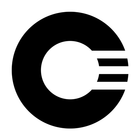
Tomboy
Tomboy is a free and open-source desktop note-taking application designed for simplicity and efficiency across Linux, Unix, Windows, and macOS. It utilizes a wiki-like interface for easy linking between notes and offers features like automatic linking, full-text search, and local storage, making it an accessible and reliable tool for organizing your thoughts and tasks.
About Tomboy
- Automatic Link Generation: As you type, Tomboy intelligently recognizes potential links to other notes, simplifying navigation and connection creation.
- Local Storage: Notes are stored locally on your computer, providing offline access and control over your data.
- Full-Text Search: Quickly find any note or information within your notes using a robust search function.
- Wiki-like Interface: Navigate and organize your notes using a simple, hyperlink-based structure.
- Basic Formatting: Apply bold, italics, and other basic text formatting to enhance readability.
Pros & Cons
Pros
- Simple and user-friendly interface.
- Excellent wiki-like linking feature for connecting notes.
- Notes stored locally, ensuring data privacy and offline access.
- Fast and responsive, even with a large number of notes.
Cons
- Lacks advanced formatting and media embedding features.
- Synchronization across devices is not built-in and requires external setup.
- Limited features compared to some modern note-taking applications.
What Makes Tomboy Stand Out
Wiki-like Structure for Easy Linking
The core design facilitates effortless linking between notes, making it simple to build a web of interconnected information.
Offline-First Local Storage
All notes are stored locally, ensuring complete data ownership and access without an internet connection.
Cross-Platform Availability
Provides a consistent user experience across Linux, Unix, Windows, and macOS.
Features & Capabilities
10 featuresExpert Review
Tomboy: A Focused Look at a Classic Desktop Note-Taker
Tomboy has long held a place in the realm of desktop note-taking applications, particularly within the Linux community. Its enduring appeal lies in its adherence to a fundamental principle: simplicity. Unlike many contemporary note-taking tools that strive to be all-encompassing digital workspaces, Tomboy focuses squarely on the act of writing notes and, crucially, linking them together.
The application's interface is immediately accessible. Upon opening, you are typically greeted with a new note ready for input. The design is clean, minimalist, and free from the clutter that can often detract from the process of putting thoughts onto digital paper. This simplicity is not just aesthetic; it underpins the user experience. Basic formatting options, such as bold, italics, and bullet points, are readily available, allowing for some level of text organization without overwhelming the user with choices.
The real power of Tomboy, and its defining characteristic, is its wiki-like linking system. As you type the title of another note within the body of your current note, Tomboy automatically recognizes it and creates a hyperlink. This intuitive feature encourages users to connect related ideas, subjects, and tasks, gradually building a personalized knowledge base. Navigating between linked notes is as simple as clicking the hyperlink, creating a fluid and non-linear way of exploring your thoughts. This approach is particularly effective for brainstorming, project planning where ideas are interconnected, or simply creating a personal wiki of information.
One of Tomboy's significant advantages, especially in an age of pervasive cloud services, is its commitment to local storage. All your notes reside directly on your computer's file system. This provides users with complete control and ownership of their data and ensures that your notes are always accessible, regardless of internet connectivity. For users concerned about privacy or who work frequently in offline environments, this is a major benefit.
Searching for information within your notes is another area where Tomboy performs well. The application includes a robust full-text search capability that quickly scans all your notes to find relevant content. This is essential as your collection of notes grows, preventing information from being lost within a large archive.
While Tomboy excels in its core function, it's important to acknowledge its limitations compared to more modern alternatives. Features common in many current note-taking apps, such as rich media embedding (images, videos), advanced formatting options (tables, code blocks), or real-time collaboration, are not present. The focus remains firmly on text and links between text-based notes. Similarly, synchronization across multiple devices requires setting up external synchronization methods, which can add a layer of complexity compared to integrated cloud sync found in other applications.
Despite these limitations, Tomboy remains a highly effective tool for a specific type of user: those who value simplicity, local data control, and the ability to easily link their thoughts and ideas. It's an excellent choice for personal note-taking, journaling, developing connected ideas, and managing simple todo lists within the context of your notes. Its cross-platform availability ensures that users on different operating systems can enjoy the same straightforward and efficient note-taking experience. In conclusion, Tomboy is a classic for a reason – it does what it sets out to do with elegance and efficiency, providing a reliable and user-friendly environment for building a network of interconnected notes.














